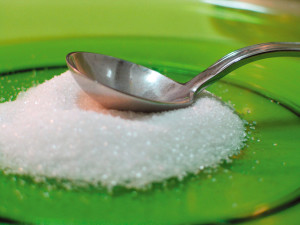If you were to spend an hour scouring the internet, you could easily be convinced that all foods are mutant super-villains out to kill us, and that all food producers are trying to turn us into brain -washed minions so they can take over the world. Okay, maybe it’s not that dramatic, but the media does tend to make it easy to wonder if there are any foods safe to eat other than celery. (I have never come across any evil celery theories. I think most of us actually forget about celery altogether unless we are making soup). So what is actually good for us to eat, and what isn’t?
-washed minions so they can take over the world. Okay, maybe it’s not that dramatic, but the media does tend to make it easy to wonder if there are any foods safe to eat other than celery. (I have never come across any evil celery theories. I think most of us actually forget about celery altogether unless we are making soup). So what is actually good for us to eat, and what isn’t?
After many years of nutrition classes, I realized that the vast majority of foods are neither inherently “good” or inherently “bad”. Each food has a different nutrient composition, meaning some foods are more nutrient-dense and therefore should be eaten more frequently, while some foods have less nutritional quality and therefore shouldn’t be eaten as often. But that doesn’t make them necessarily bad.
(One of the few foods I do believe to be outright bad is soda…more on that in a moment.)
During my almost 10 years as a dietitian nutritionist here in Salt Lake City, I’ve learned that the rule of “moderation in all things” is especially important when it comes to foods. Even too much of certain vitamins and minerals can be toxic. Eating healthy is simply a matter of wanting to eat the most healthy foods the most often, and the least healthy foods the least often.
That said, sometimes it’s hard to know what is really healthy and what isn’t, because there is so much misinformation out there. Partially due to the rise of fad diets, many foods have gotten a bad reputation…and it’s often underserved. (For example, some fad diets would have you believe you should avoid carbohydrates like the plague…nonsense!) To combat this trend, I’ve decided to do a series of “mini-articles” to address common food myths and misconceptions.
One of my favorite shows is Mythbusters. I love it because the show usually deals with real-world questions, and try their best to show the actual science or evidence behind the answers. So I decided to structure these mini-articles a bit like the show. I will start with a food myth and then go on to explain if it is busted, confirmed, or plausible, and why. Hopefully you can learn some cool stuff, and enjoy yourself along the way. Above all, I hope you’ll be able to see that you can still enjoy some of your favorite foods while sticking to a balanced, nutritious diet.
Enough talk, let’s check out Myth #1. (I’ll cover other myths in future articles.)
Food Myth #1: Eating sugar causes diabetes, cancer, cavities, and makes pain worse; therefore sugar is bad and you should almost never eat it.
The Facts:
Many people don’t realize that carbohydrates and sugar are related. Carbohydrates are made up of rings of sugars hooked together in various ways. When we eat carbohydrates, they get broken down and digested back into those rings of sugar. So, carbohydrates are sugars, but some are complex and some are refined. Complex carbohydrates are things like whole grains and fiber. Refined sugars are things like table sugar, high fructose corn syrup, honey, and sugar found in fruit juice. The more refined the sugar, the less work our bodies have to do in order to digest it, and the faster it spikes our blood sugar, which is not a good thing.
Sugar and Diabetes
Consuming excess amounts of refined sugars, particularly in the form of sugar-sweetened beverages (soda, for example) has been linked with the development of type 2 diabetes.[1] Soda is full of refined sugars, provides practically no nutritional benefit, and has only been found to have adverse effects on our bodies…which is why it finds itself on my very short black list of foods. It should be noted that there are many things that can contribute to the development of type 2 diabetes, like physical fitness, age, and genetics. On the other hand, eating complex sugars in the form of whole grains has not been associated with the development of diabetes, and the fiber contained in those foods can actually help with blood sugar regulation.
Does Sugar Cause Cancer?
The fact of the matter is that sugar is your body’s main source of energy. Our cells actually breakdown sugar to use as energy! On the other hand, tumor cells also use sugar as energy. For this reason, it’s sometimes alleged that eliminating sugar from your diet can help prevent cancer, and eating it will “feed cancer” if it is present. But studies show that eating sugar doesn’t necessarily lead to cancer. Furthermore, if you try to deprive tumor cells of their form of energy, you also deprive healthy cells of the same energy source.[2] So by trying to prevent one problem, you are actually creating another!
But what about our teeth?
Some people claim that we should never eat sugar because it causes cavities. Here’s the truth: sugar by itself does not cause cavities. Ask any dentist and they’ll tell you that what really happens is that the germs in your mouth use sugar to produce acid. Germs + sugar = Acid. It’s actually the acid that eats holes in your teeth and makes them susceptible to cavities. Brushing and flossing as recommended by your dentist is what prevents cavities, not simply eliminating sugar from your diet.[3] The important thing is to avoid consuming high-sugar foods and then not brushing.
Sugar and pain
Here at Salt Lake NutriCoaching, one of my specialties is helping people with chronic pain issues find easy, affordable ways to manage pain through proper nutrition. One thing I often tell my patients is that eating too much refined sugars causes a release of proteins called cytokines, which promote inflammation.[4] Inflammation is a common cause of pain, particularly in the joints and muscles. On the other hand, complex sugars in the form of whole grains do not cause the same rapid rise in blood sugar levels and therefore do not cause the same cytokine release. Eating balanced meals, emphasizing complex sugars like whole grains, and including a good source of protein when you eat refined sugars can help prevent the rapid rise in blood sugar level and decrease the cytokine response. This, in turn, can help you manage inflammation and pain.
Conclusion
Sugar is like many other foods: if eaten in excess it is not a good thing, but it’s still an important nutrient that our body needs. Some forms of sugar are better for us than others. Refined sugars, like high fructose corn syrup found in soda and sports drinks, and those found in many desserts, aren’t the best kinds of sugars. Those that come from whole grains and complex carbohydrates are generally healthier choices because they don’t cause the same rise in blood sugar and often contain other vitamins and minerals that our bodies need. In the end, it’s not sugar itself that is the villain. The real enemy is the all-too common habit of eating it in excess.
Verdict: BUSTED
If you have any questions about the appropriate level of sugar in your diet, or how sugar plays a role in reaching your weight goals, managing chronic pain, or dealing with diabetes, please give me a call at 801-815-7301. I would be happy to set up a one-on-one consultation and diet analysis with you. This way you can feel confident that you are eating the right amount of sugar as part of a balanced diet that takes your specific goals and needs into account.
[1] Sugar-Sweetened Beverages and Risk of Metabolic Syndrome and Type 2 Diabetes http://care.diabetesjournals.org/content/33/11/2477.short
[2] Does Cancer Love Sugar?
http://www.mdanderson.org/patient-and-cancer-information/cancer-information/cancer-topics/prevention-and-screening/food/cancersugar.html
[3] Does sugar cause cavities? No…and yes.
http://www.dentalcarestamford.com/articles/article_04.htm
[4] What you eat can fuel or cool inflammation, a key driver of heart disease, diabetes, and other chronic conditions.
http://www.health.harvard.edu/family_health_guide/what-you-eat-can-fuel-or-cool-inflammation-a-key-driver-of-heart-disease-diabetes-and-other-chronic-conditions
